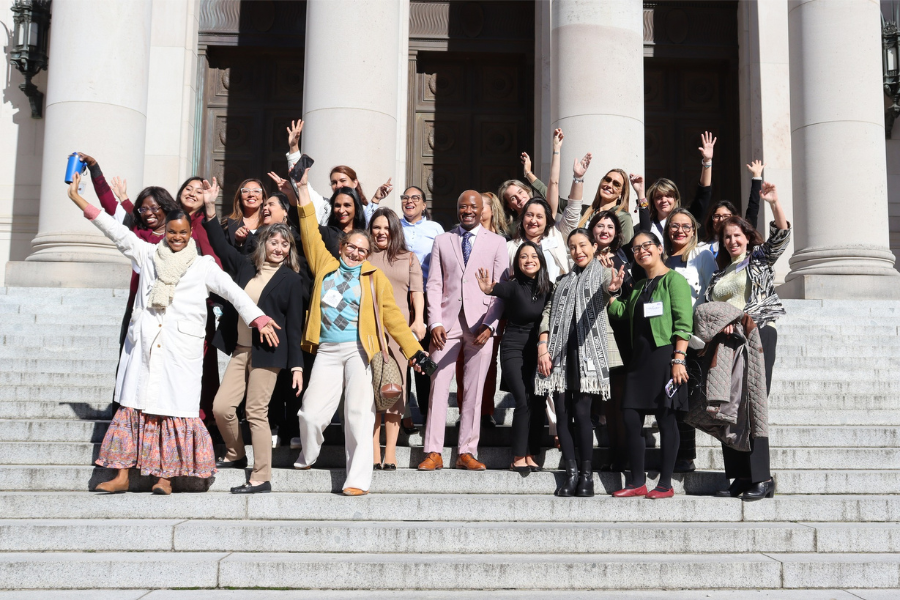A Long History In This Region
Spokane Seed Company has been in business since 1908. Andrew Fontaine is the President and General Manager. His great-grandfather was the original owner; now the business is in its 4th generation of his family’s ownership.
This legume processor sources its products from approximately 350 local farmers. The peas, chickpeas, and lentils are grown mostly south of Spokane throughout the Palouse region.
These pulse products were initially brought to this area by German immigrants in the late 1800s. In fact, the Palouse region was the first area in this country to grow these crops.
Why is it an excellent idea for farmers to grow these legumes? Andrew says, “our products naturally fix nitrogen in the soil, which means they don’t require additional fertilizer. And when they harvest the pulse crops, residual nitrogen stays in the soil. The following season they plant wheat on top of that naturally fertilized soil which makes the wheat yields go up 15%. That’s why we’re so popular in this area, as they support the wheat crops too.”
Their Customer Base
Spokane Seed sells its food products all over the world. They sell half of their production domestically and export half to numerous countries. It’s all sold in bulk or large bags, each weighing 55 to 2000 pounds.
Some of their larger domestic customers include Campbells Soup (their split pea soup has used their peas since 1949), Progresso, Heinz, Gerber, Del Monte, and Goya – to name a few. But you won’t see packaged dried legumes under the Spokane Seed brand on local grocery shelves. Instead, the trend lately is all towards private label store brands such as Western Family or Great Value. So if you shop for lentil soup mix in the bean aisle, chances are you’re buying a Spokane Seed product.
Spokane Seed is an experienced exporter. The #1 country they export to is Spain, and #2 is The Philippines. They also have customers in Israel, Greece, Japan, Taiwan, China, Vietnam, Peru, Columbia, the Caribbean, Australia, and even Iceland.
A Unique Valley Chamber Service
The Greater Spokane Valley Chamber of Commerce offers Certificates of Origin. A Certificate of Origin is an international trade document attesting that goods in an export shipment are wholly obtained, produced, manufactured, or processed in a particular country. Andrew explains, “We need the Chamber to endorse that we’re members of the Chamber based here in Spokane Valley. It’s just a signature on the bottom of the document that some countries require. It authenticates that its products are coming from where it says they are. So, we’re not just some company saying we’re from Spokane, but we’re really somewhere else.”
“The staff at the Chamber has been really great. We usually get help from Sue Rusnak, the Office Manager. She’s easy to work with.”
You can learn more about the Valley Chamber’s Certificates of Origin Service here.
Exploiting Trendy Legume Benefits
Fortunately, the products Spokane Seed processes and sells are riding the waves of two popular eating trends: they are high in protein and naturally Non-GMO. The company makes the most out of the high protein advantage of the chickpeas by selling large volumes of these to a chickpea pasta manufacturer in California. They, in turn, grind the chickpeas into flour and create a high-protein dried pasta. To do this right, Spokane Seed shaves off some of the rough hulls from the chickpeas first, so the pasta doesn’t taste too grainy and has a better “mouth feel”. As a result, Andrew says, “We ship a full truckload of garbanzos to the pasta maker every day, 365 days a year. They’ve become one of our largest customers.”
Balancing Consumer Expectations
When asking Andrew what could help strengthen the agricultural industry, his answer was about consumer perceptions and expectations. Although his products are Non-GMO (unlike corn, soybeans, canola, and others), the farmers still need to use pesticides and herbicides to grow these crops successfully. Andrew exclaimed, “I can tell you that it would shock many people to go out into a field that had not been sprayed with any herbicides or pesticides and see the food that comes off of the field and what it looks like. You wouldn’t want to eat it for one, and there wouldn’t be very much to eat. But consumers don’t want genetically modified ‘Roundup ready’ crops either. So I just wish there was some sort of communication or some way that the farm community can be happy and prosper, and the consumers can be more accepting and understand what it takes to grow healthy crops.”








